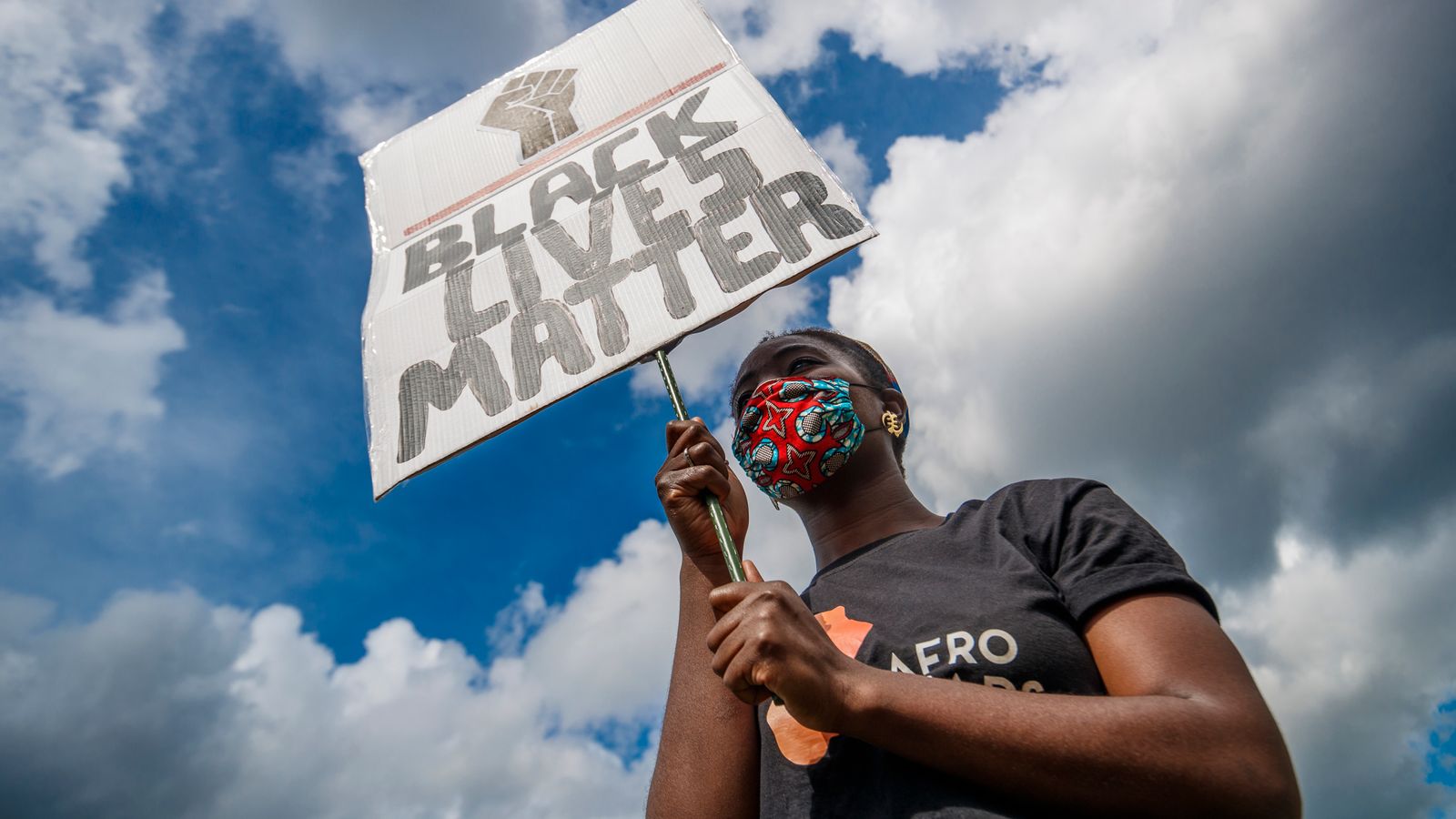The authors of a government-backed report on racial disparity have hit back at the widespread backlash of its findings, claiming that disagreement with the review has been “tipped into misrepresentation”.
The Commission on Race and Ethnic Disparities – which was appointed by Prime Minister Boris Johnson in response to last summer’s Black Lives Matter protests – published its 258-page report on inequality in Britain on Wednesday.
The authors have defended the review after accusations that it put a “positive spin” on slavery, claiming in a statement that any suggestion it had done so was “as absurd as it is offensive”.
Please use Chrome browser for a more accessible video player
Reacting to the backlash, the commission said that “sadly” in some cases “fair and robust disagreement with the commission’s work has tipped into misrepresentation”.
“This misrepresentation risks undermining the purpose of the report – understanding and addressing the causes of inequality in the UK – and any of the positive work that results from it.”
It added: “We have never said that racism does not exist in society or in institutions. We say the contrary: racism is real and we must do more to tackle it.”
The commission also pulled up politicians and other public figures for “deeply personal attacks” on its members in the statement, calling it “irresponsible and dangerous”.
Referring to Labour MP Clive Lewis’ comments, it said: “For example, one MP presented commissioners as members of the KKK,” the statement said.
“Robust debate we welcome. But to depict us as racism deniers, slavery apologists or worse is unacceptable.”
Former shadow defence secretary Mr Lewis had responded to the initial report by tweeting a picture of a Ku Klux Klan member standing in front of a burning cross with the caption: “Move along. Nothing to see here #RaceReport” before adding: “To be crystal clear this image represents structural racism. Just so we’re clear.”
The commission said it hoped that the report will be “read carefully and considered in the round”, adding: “Our experience since publication only reinforces the need for informed debate on race based on mutual respect.
“The 24 recommendations we have made will, in our view, greatly improve the lives of millions of people for the better if they are all implemented.”
Lead by the commission’s chairman Dr Tony Sewell, the landmark review said Britain is no longer a country where the “system is deliberately rigged against ethnic minorities”.
Please use Chrome browser for a more accessible video player
It said it had found no evidence of “institutional racism”, concluding that the “claim the country is still institutionally racist is not borne out by the evidence”.
While Mr Johnson described the report as an “important piece of work”, it received widespread criticism, with Labour dismissing it as a “divisive polemic which cherry-picks statistics”.
“To downplay institutional racism in a pandemic where Black, Asian and ethnic minority people have died disproportionately and are now twice as likely to be unemployed is an insult,” shadow women and equalities secretary Marsha de Cordova said.
Another critic of the report was former equality and human rights commissioner Lord Simon Woolley, who said the report was a “monumental moment missed” following the death of George Floyd in the US last year and subsequent Black Lives Matter protests.
Meanwhile, historian David Olusoga wrote in the Guardian that the authors “stumble, ill-prepared and overconfident, into the arena of history”.
“Shockingly, the authors – perhaps unwittingly – deploy a version of an argument that was used by the slave owners themselves in defence of slavery 200 years ago: the idea that by becoming culturally British, black people were somehow beneficiaries of the system,” he wrote.
Labour MP Diane Abbott told Sky News it was “more about politics than the policy” and “taking us back in the argument for racial justice, not taking us forward”.
In the report, the commission wrote that geography, family influence, socio-economic background, culture and religion all affect life chances more than racism.






















